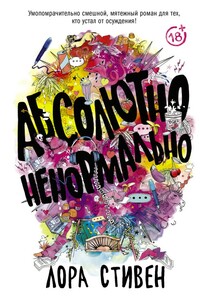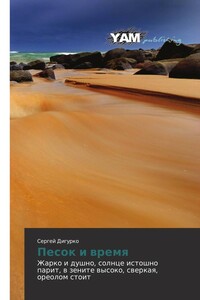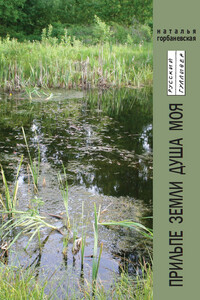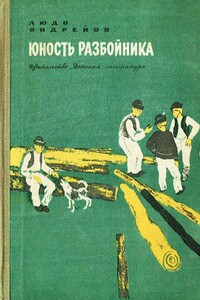36 Arguments for the Existence of God - [30]
Even though his mother went strange around her, Cass had loved his widowed bubbe. Another thing that was hard to ignore was that his bubbe didn’t treat Jesse as nicely as she treated him. It wasn’t even clear that Bubbe knew Jesse’s name. She called him “little boy.” If Jesse came over and tried to climb onto her lap-a space freely offered to Cass-Bubbe would push him away.
“Feh, here he is again. The second tog”-day-“of yom tov”-a holiday- “always schlepping after the first. Why don’t you go find your mommy, little boy, and let your older brother enjoy in peace a little?”
Jesse was so shocked by Bubbe’s behavior that he would go off without a word of protest, an unusual response for Cass’s brother, who could fly off the handle if Cass or his mother or father failed to read his mind concerning something he wanted. Cass always saved for Jesse at least half the babka that Bubbe gave him, even though she would impress upon him that she had made the delicious yeast cake for him “special,” as if she had foreseen he might want to share it with the little boy, his brother.
He wasn’t allowed to taste the babka, or anything else, until he had made the right blessing, the bracha. If he ever forgot, which he rarely did, his bubbe would purse her lips and say, “Feh! Like an animal, a vilda chaya, he’s being brought up. A shanda fur da Yidden.” A disgrace for the Jews.
His bubbe had taught him all the brachas that had to be made before eating. There was one for fruit, but another one specifically for grapes, and one for vegetables and one for bread and one that was for a grab bag of things. And, of course, there was a bracha for baked goods, mazoynos, including Bubbe’s babka. Bubbe would quiz him closely every time he visited. It wasn’t as straightforward as just knowing the general types, since foods could be mixtures, and some of the categories trumped the others. The bracha also depended on how much of something there was and also whether something had been done to the food to make it change its type: the apples in apple juice didn’t count as fruit. It was complicated. What if there were raisins in the babka that Bubbe had baked for her little Hasid, her little pious one? Should Chaim make the bracha for the baked good or for the fruit? (The baked good!) And what about cereal? If it was corn flakes, then you have to make the one for vegetables, haadama, for things that grow in the ground. But it if was Cheerios, then you said mazoynos.
You also had to be careful about silverware and dishes, never mixing up the dairy with the meat. It had been poor Jesse’s fate to have mixed some Bosco into his milk with a teaspoon from the wrong drawer, and Bubbe’s wrath had been biblical. She had taken both boys out to the backyard and shown them how now she had to stick the spoon in the dirt to clean it. Dirt to clean? When they had asked their mother, she had answered in a way uncharacteristically terse: “If it seems crazy to you, you understand it perfectly.”
Cass could have asked his mother to review the brachas with him. She still knew everything, including Yiddish. But he could tell that she would rather he didn’t master his brachas too well.
Funny that he could still miss his bubbe, even though by now he understood a lot more about the personality disorder that had made her decide that Chaim was git-good-and the “little boy” who was his brother was nish git. She had died when Cass was a junior in college, but she had been banished from their lives long before then, with the full approval of BOIL.
When he came back after the interval that Aviva Landesmann had specified to him, she had something better to offer him than babka. It was The View from Nowhere, by the philosopher Thomas Nagel. Cass thanked Aviva much more than she was probably used to being thanked and went off to his carrel, three flights below ground level in the Lipschitz Library.
The basic idea in The View from Nowhere is that we humans have the unique capacity to detach ourselves from our own particular point of view, achieving degrees of objectivity, all the way up to and including the view of how things are in themselves, from no particular viewpoint at all. This is what Nagel calls the View from Nowhere, and he analyzes all sorts of philosophical problems by showing how they arise out of the clash of the subjective point of view with the View from Nowhere.
The View from Nowhere was hard going, but Cass kept plugging along, at first motivated simply by his burning desire to get to the bottom of Gideon Raven’s gnomic message. But then Cass got to a section that made him forget all about gleaning any clues to his afternoon’s ordeal.
BEING SOMEONE
One acute problem of subjectivity remains even after points of view and subjective experience are admitted to the real world-after the world is conceded to be full of people with minds, having thoughts, feelings, and perceptions that cannot be completely subdued by the physical conception of objectivity. The general admission still leaves us with an unsolved problem of particular subjectivity. The world so conceived, though extremely various in the types of things and perspectives it contains, is still centerless. It contains us all, and none of us occupies a metaphysically privileged position. Yet each of us, reflecting on this centerless world, must admit that one large fact seems to have been omitted from its description: the fact that a particular person in it is himself.

Жизнь – это чудесное ожерелье, а каждая встреча – жемчужина на ней. Мы встречаемся и влюбляемся, мы расстаемся и воссоединяемся, мы разделяем друг с другом радости и горести, наши сердца разбиваются… Красная записная книжка – верная спутница 96-летней Дорис с 1928 года, с тех пор, как отец подарил ей ее на десятилетие. Эта книжка – ее сокровищница, она хранит память обо всех удивительных встречах в ее жизни. Здесь – ее единственное богатство, ее воспоминания. Но нет ли в ней чего-то такого, что может обогатить и других?..

У Иззи О`Нилл нет родителей, дорогой одежды, денег на колледж… Зато есть любимая бабушка, двое лучших друзей и непревзойденное чувство юмора. Что еще нужно для счастья? Стать сценаристом! Отправляя свою работу на конкурс молодых писателей, Иззи даже не догадывается, что в скором времени одноклассники превратят ее жизнь в плохое шоу из-за откровенных фотографий, которые сначала разлетятся по школе, а потом и по всей стране. Иззи не сдается: юмор выручает и здесь. Но с каждым днем ситуация усугубляется.

В пустыне ветер своим дыханием создает барханы и дюны из песка, которые за год продвигаются на несколько метров. Остановить их может только дождь. Там, где его влага орошает поверхность, начинает пробиваться на свет растительность, замедляя губительное продвижение песка. Человека по жизни ведет судьба, вера и Любовь, толкая его, то сильно, то бережно, в спину, в плечи, в лицо… Остановить этот извилистый путь под силу только времени… Все события в истории повторяются, и у каждой цивилизации есть свой круг жизни, у которого есть свое начало и свой конец.

С тех пор, как автор стихов вышел на демонстрацию против вторжения советских войск в Чехословакию, противопоставив свою совесть титанической громаде тоталитарной системы, утверждая ценности, большие, чем собственная жизнь, ее поэзия приобрела особый статус. Каждая строка поэта обеспечена «золотым запасом» неповторимой судьбы. В своей новой книге, объединившей лучшее из написанного в период с 1956 по 2010-й гг., Наталья Горбаневская, лауреат «Русской Премии» по итогам 2010 года, демонстрирует блестящие образцы русской духовной лирики, ориентированной на два течения времени – земное, повседневное, и большое – небесное, движущееся по вечным законам правды и любви и переходящее в Вечность.

События, описанные в этой книге, произошли на той странной неделе, которую Мэй, жительница небольшого ирландского города, никогда не забудет. Мэй отлично управляется с садовыми растениями, но чувствует себя потерянной, когда ей нужно общаться с новыми людьми. Череда случайностей приводит к тому, что она должна навести порядок в саду, принадлежащем мужчине, которого она никогда не видела, но, изучив инструменты на его участке, уверилась, что он талантливый резчик по дереву. Одновременно она ловит себя на том, что глупо и безоглядно влюбилась в местного почтальона, чьего имени даже не знает, а в городе начинают происходить происшествия, по которым впору снимать детективный сериал.

«Юность разбойника», повесть словацкого писателя Людо Ондрейова, — одно из классических произведений чехословацкой литературы. Повесть, вышедшая около 30 лет назад, до сих пор пользуется неизменной любовью и переведена на многие языки. Маленький герой повести Ергуш Лапин — сын «разбойника», словацкого крестьянина, скрывавшегося в горах и боровшегося против произвола и несправедливости. Чуткий, отзывчивый, очень правдивый мальчик, Ергуш, так же как и его отец, болезненно реагирует на всяческую несправедливость.У Ергуша Лапина впечатлительная поэтическая душа.